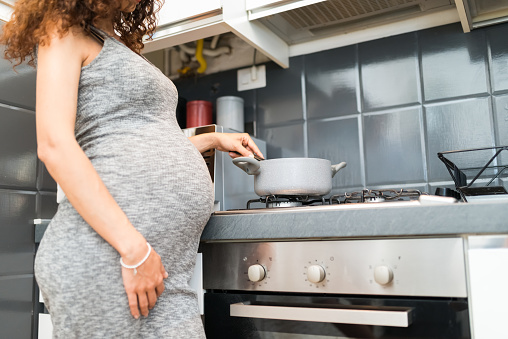For Perinatal Women, The Recipe for Overcoming Addiction Includes Good Food

As a public health master’s candidate doing an NEPHTC internship at the Dartmouth-Hitchcock perinatal addiction treatment program in Lebanon, New Hampshire, Deirdre Martinez Meehan brought an environmental health perspective to the team. The program’s participants were pregnant women or new mothers with substance abuse disorders, primarily opioid addiction, from the largely rural communities in the area. As a service to the participants, the clinic had begun stocking food items from The Haven, a local food pantry. Martinez Meehan set out to assess participants’ food intake with an eye toward improving the foods offered onsite.
She started with a food frequency questionnaire, and it was a revelation. “A lot of the clients would not have eaten that day — just coffee or candy or energy drinks,” says Martinez Meehan. “A clinician would say, one of the clients really hasn’t been with the program to the degree she should be. And when we looked at her food frequency questionnaire, she had only had coffee for the last 24 hours. That’s really going to affect your ability to participate in something like group therapy.”
Martinez Meehan wanted to get the perinatal clients interested in food again. Working with The Haven, she expanded the availability of fresh produce and other foods, brought in a crock pot and began working with the clients to make meals. “We started with breakfast, because everyone can at least have breakfast.” Soon the clients were sharing recipes” and showing others how to make them. “It turns out some of them were excellent cooks,” says Martinez Meehan. One showed the group how to make a simple roux for sauces.
These clients face real challenges in making food a positive part of their lives: transportation, income, a sense of stigma”or the humiliation of rejection by a bar code reader” when using SNAP cards, and, of course, priorities distorted by addiction. But just as they chose to come to the program to address their addiction, many clients began to address their food needs, too.
Though her internship ended, Martinez Meehan stayed on an extra month to keep building the program” and to help clients create a cookbook. She has now moved to the Midwest, but, she says, “A medical student from Dartmouth is going to help continue the process. I’m really excited to see it live on.”